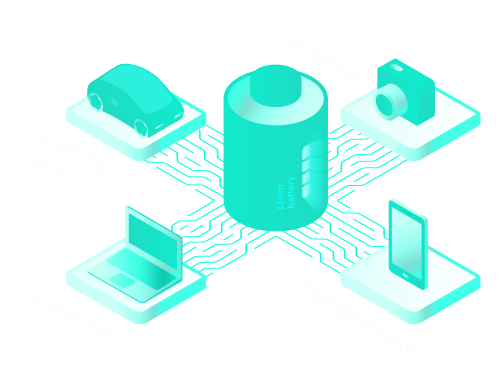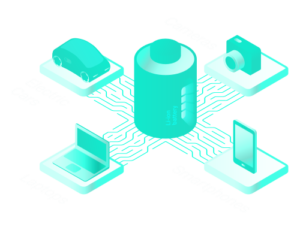Sodium-Ion Batteries: A Game Changer for Sustainable Investing
As the world shifts towards sustainable energy solutions, Natron Energy is pioneering a new path with its sodium-ion batteries. Despite a slight delay past their 2023 target, Natron has officially commenced mass production of its innovative, rapid-charging, long-life sodium batteries. This development marks a significant milestone in the energy storage sector, presenting a compelling alternative to traditional lithium-ion batteries.
Why Sodium?
Sodium is 500 to 1,000 times more abundant than lithium, and its extraction is far less harmful to the environment. Unlike lithium, sourcing sodium does not involve earth-scarring mining practices. Natron’s sodium-ion batteries are crafted from readily available materials such as aluminum, iron, and manganese, making them an eco-friendly choice.
For sustainable investors, the significance of these materials cannot be overstated. The reliance on locally sourced, abundant materials reduces supply chain vulnerabilities and geopolitical risks. In contrast, lithium-ion batteries often depend on cobalt and nickel, which are subject to geopolitical tensions and ethical concerns regarding mining practices.
Advantages of Sodium-Ion Technology
While sodium-ion batteries may have a lower energy density compared to their lithium-ion counterparts, they offer several distinct advantages:
- Faster Cycling: Sodium-ion batteries charge and discharge up to 10 times faster than lithium-ion batteries.
- Longer Lifespan: With an estimated lifespan of 50,000 cycles, these batteries are designed for longevity.
- Safety: Sodium-ion batteries are non-flammable, reducing the risk of fires.
- Stability: The chemistry of sodium-ion batteries is inherently stable, ensuring reliable performance.
These features make sodium-ion batteries particularly well-suited for stationary applications, such as data centers and EV charger backup storage, where safety, reliability, and rapid cycling are paramount.
Natron Energy: Leading the Charge
Founded in 2013, Natron Energy has been at the forefront of sodium-ion battery research and development. This week, the company celebrated a landmark achievement: the commencement of commercial-scale production at its Holland, Michigan facility. This site is now the first in the US to produce sodium-ion batteries at a commercial scale, a significant step in the evolution of sustainable energy storage solutions.
At the ribbon-cutting ceremony, Natron’s founder and co-CEO, Colin Wessells, emphasized the importance of innovative energy storage solutions for the electrification of the economy. “We at Natron are proud to deliver such a battery without the use of conflict minerals or materials with questionable environmental impacts,” Wessells stated.
Impact on Sustainable Investing
For financial advisers and sustainable investors, Natron’s advancements in sodium-ion technology represent a promising investment opportunity. The company’s commitment to ethical sourcing, environmental stewardship, and technological innovation aligns well with the principles of sustainable investing.
Natron’s initial production target is AI data storage centers, where the demand for reliable, fast-cycling batteries is rapidly increasing. As production ramps up, Natron plans to expand its focus to other industrial power markets, including EV fast-charging and telecommunications.
Other Leading Sodium-Ion Battery Makers
In addition to Natron, several other companies are making significant contributions to the sodium-ion battery market:
- Contemporary Amperex Technology Co. Ltd. (CATL): CATL has developed sodium-ion batteries with an energy density of 160 Wh/kg and aims to increase it to 200 Wh/kg. These batteries are known for their excellent thermal stability and high integration efficiency, suitable for transportation and stationary energy storage applications. CATL is also engaging in partnerships with car manufacturers to license its technology, facilitating global production scale-up (electrive.com) (pv magazine International).
- Faradion Limited: Acquired by Reliance Industries, this UK-based company is a pioneer in non-aqueous sodium-ion cell technology. Faradion’s batteries are recognized for their safety and cost-effectiveness. Production is expected to take place in India, leveraging Faradion’s extensive patent portfolio to support a variety of applications, especially in energy storage systems (SodiumBatteryHub) (Mordor Intel).
- BYD (Build Your Dreams): The world’s largest EV maker, BYD, has started constructing a sodium-ion battery plant with a planned annual capacity of 30 GWh. These batteries offer a cheaper alternative to lithium-ion, particularly suitable for low-cost small cars and two-wheelers. BYD’s investment highlights its commitment to diversifying its battery technology portfolio and promoting safer, more sustainable energy solutions (Electrek).
Looking Ahead
Natron’s Holland facility aims to reach an annual production capacity of 600 megawatts, serving as a prototype for future gigawatt-scale plants. With first deliveries expected in June, the company is poised to play a crucial role in the sustainable energy landscape.
Natron Energy’s sodium-ion batteries offer a viable and environmentally friendly alternative to lithium-ion technology. For those committed to sustainable investing, Natron’s innovative approach and strategic market positioning make it a noteworthy consideration. As the world continues to embrace cleaner energy solutions, Natron Energy stands out as a leader in the next wave of sustainable battery technology.






